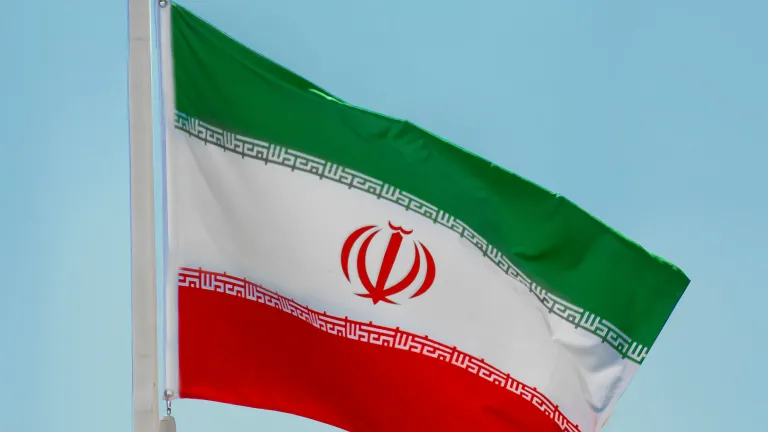Iran: How Did We Get to This Point?

Tensions between Israel and Iran have reached a boiling point—but how did we get here? This article traces the spiritual and historical roots of the conflict, from ancient Persia to today’s nuclear threats, revealing a deeper battle behind the headlines—one foretold in Bible prophecy and unfolding before our eyes.
On the evening of June 12, 2025, Israel launched a preemptive strike against Iranian targets tied to its nuclear weapons program. The attacks also aimed to disrupt Iran’s military command structure. This marked a significant escalation in a long and turbulent relationship between two ancient peoples. To understand the gravity of this moment in world history, we must consider how we arrived here.
Ancient roots and prophetic relevance
Iran, known in antiquity as Persia, is one of the world’s oldest nations. Its name appears early in the biblical record. In Genesis, we read of Elam, a son of Shem (Genesis 10:22), whose descendants settled in what is today southwestern Iran. Later, the Persian Empire rose to prominence alongside the Medes. The Medo-Persian Empire is prophesied in Daniel chapters 2 and 7, and it plays a key role in the books of Ezra, Nehemiah and Esther.
The book of Esther, in particular, tells the story of how God delivered the Jewish people from a genocidal plot in Persia. That context remains striking when viewed alongside today’s tensions.
In A.D. 633, Islam was introduced to Persia. Over time, Shia Islam became the dominant form practiced there. Today, roughly 90 percent of Iran’s population are adherents of Shia Islam—a significant detail in understanding the religious motivations driving the Iranian regime.
From oil concessions to coup d’état
In 1901, British businessman William D’Arcy secured an oil concession from the Persian monarchy. The discovery of massive oil reserves led to the creation of the Anglo-Persian Oil Company (APOC). In 1913, APOC built what became the world’s largest oil refinery, which played a vital role in fueling the British navy and war machine—particularly after Winston Churchill, then First Lord of the Admiralty, switched naval propulsion from coal to oil.
In 1925, Reza Shah came to power after a coup, pushing secular modernization and requesting the world call his country “Iran.”
During World War II, with Iran allowing German nationals to remain in the country, the Allies feared sabotage or German control of the oil fields. In response, British and Soviet forces invaded in 1941. Reza Shah was forced to abdicate, and his son, Mohammad Reza Pahlavi, took the throne.
In 1951, Iranian Prime Minister Mohammad Mosaddegh nationalized the country’s oil industry, kicking out foreign oil workers. This led to a drastic decline in production and revenue. Alarmed, the British government—concerned about its energy needs and economic recovery—teamed up with the American CIA to orchestrate a coup in 1953. Mosaddegh was overthrown, and the Shah returned to full power.
This began a long and bitter legacy of resentment. The Iranian people had seen their democratic process overturned through foreign interference—especially by the United States and the United Kingdom. From that time forward, Western influence in Iran was increasingly seen not as partnership, but as domination.
Revolution and religious rule
By the 1970s, despite oil wealth, most Iranians lived in poverty. Corruption, repression by the Shah’s secret police (SAVAK), and cultural Westernization bred deep dissatisfaction.
In 1979, an Islamic revolution swept the country. Ayatollah Ruhollah Khomeini emerged as Supreme Leader. The new theocratic government was led by Islamic clerics with civil leaders subordinate to their rule. This governance model was heavily influenced by a specific branch of Shia Islam known as “Twelver Shiism.”
Twelvers believe that the twelfth Imam in a line of historical Shiite leadership, al-Mahdi (“the rightly guided one”), went into seclusion and will reappear amid end-time global chaos to usher in a reign of peace and justice—under Islam. Some extreme adherents believe it is their duty to create such chaos to hasten his return.
One chilling claim attributed to Iran’s leadership in this ideology is that the Mahdi cannot return until “the last drop of Jewish blood is spilled.” While such language may not appear in every public pronouncement, it reveals a dark theological underpinning to Iran’s strategy against Israel.
Strategic hostility and proxy warfare
Since the revolution, Iran has heavily funded proxy groups such as Hezbollah in Lebanon, Hamas in Gaza, and the Houthis in Yemen—all sworn enemies of Israel. It has also developed a massive missile arsenal, building underground launch facilities and dispersing them throughout mountainous regions, making them hard to destroy.
At the same time, Iran has pursued nuclear technology, enriching uranium and developing warheads with the apparent goal of acquiring a small but sufficient nuclear arsenal to threaten or annihilate Israel.
Iran’s missile strategy hinges on overwhelming Israel’s missile defense systems with sheer volume. And even with only a few nuclear weapons, it could, in theory, cause devastation beyond what Israel could survive.
Divine timing and ancient parallels
Remarkably, Israel’s unprecedented military success in this latest conflict occurred on a date of biblical significance—Sivan 23 on the Hebrew calendar. In Esther 8:9, Sivan 23 is the day Mordecai and Esther wrote the decree that countered the former Persian decree formulated by the wicked Haman calling for the destruction of the Jews—this new decree empowered the Jews to lawfully defend themselves against those who sought their destruction.
Is this mere coincidence—or something more? Are we witnessing the hand of God in current events?
Spiritual forces behind world events
The Bible teaches that spiritual forces operate behind the scenes of human history. In Daniel 10:13, we read of the “prince of the kingdom of Persia” who resisted an angel sent to Daniel for 21 days—until Michael, one of the chief angels, came to help.
“At that time Michael, the great prince who watches over your people, will arise. There will be a time of distress unlike any other from the nation’s beginning up to that time. But at that time your own people, all those whose names are found written in the book, will escape” (Daniel 12:1, New English Translation).
God assigned Michael to protect the people of Israel. And it seems clear that spiritual battles are still being waged today between the forces of light and darkness—between the princes of this world and the Kingdom of God.
Miraculous protection
The military success of Israel in this conflict is astounding. Despite launching over 200 aircraft and daily sorties into Iranian territory, not a single plane was shot down. A missile struck a wing of the Soroka Medical Center the day after it had been emptied by its director—an idea he had only just implemented. Another missile, aimed at dense neighborhoods in Tel Aviv, landed harmlessly in an open parking lot. No one was killed.
These may seem like lucky breaks—but when repeated, timely “coincidences” stack up, they begin to look like miracles.
If God protects His physical nation in this way, what greater protection can He offer His spiritual people—those who follow His Son Jesus Christ and seek to live by His Word?
Final thoughts
These are perilous days. Scripture tells us that Satan, knowing his time is short, will unleash his wrath (Revelation 12:12). But God has not abandoned His people. In fact, He is setting the stage for the return of Jesus Christ, who will reign in righteousness and bring peace to all nations.
Until then, we watch and pray. We prepare ourselves spiritually, and we trust in God’s promises. And we ask, in the words of Revelation 22:20, “Come, Lord Jesus.”
To better comprehend what’s happening in the Middle East, from the deep historical background to the fighting today to where events are ultimately headed, be sure to request or download our free study guide "The Middle East in Bible Prophecy."


